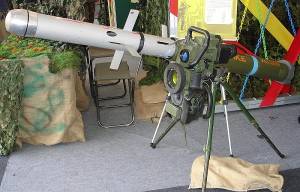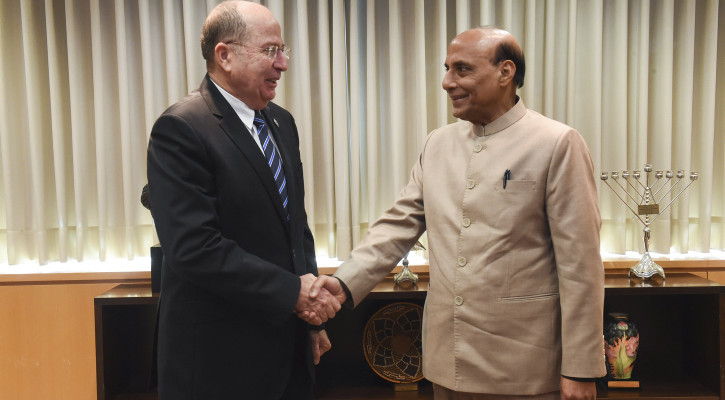Israeli Defense Minister Moshe Ya’alon is scheduled to visit India later this month in a sign of growing military cooperation between the two countries.

Spike ATGM Command and launcher unit. (Wikipedia)
Israeli Defense Minister Moshe Ya’alon is scheduled to make a historic, first-ever visit to India on February 17. As part of the increasing military cooperation between the two countries, Ya’alon will meet with a number of high-ranking Indian officials, as well as visit an arms factory in Bangalore later this month. The visit comes on the heels of a large arms sale by Israel to India as well as an important meeting between the countries’ prime ministers on the sides of a UN General Assembly meeting last fall.
The historic trip is expected to result in an arms deal worth billions of dollars, according to Israeli news site Ynet. “India and Israel share common interests and there is huge potential for cooperation between our defense establishments … [based on the] capabilities of the Israeli defense industries,” Ya’alon said following an arms deal last October. Defense cooperation between the two countries has grown rapidly in the past several months at the initiative of Indian Prime Minister Narendra Modi.
In October, India agreed to purchase $525 million worth of Israel’s Spike guided missiles, which were used extensively in last summer’s Operation Protective Edge. Another arms agreement, worth $144 million, will supply India’s battleships with 262 “Barak 1” missiles. India’s Defense Research and Development Organization is a major partner in financing and developing the “Barak-8” defense missile system, which saw its first successful trial in November.
In parallel, Israel and India are improving diplomatic ties. Prime Ministers Benjamin Netanyahu and Narendra Modi met in September at the UN, the first such meeting in over a decade. Indian Home Minister Rajnath Singh visited Jerusalem in November; it was the highest-level diplomatic visit by an Indian official in Israel’s history. “Israel and India are at the cusp of a new era of increased cooperation in a wide variety of fields,” said Netanyahu at the meeting.
The strengthening of ties is not without controversy in India. When then-Defense Minister Ehud Barak requested a visit in May 2012, he was refused due to fears that it would enrage India’s large Muslim population. India’s left-wing parties, led by the Communist Party of India-Marxist, have opposed any military cooperation or arms deals with Israel. Additionally, the “Barak 1” missile deal was delayed by unfounded accusations that the Indian officials involved had received kickbacks from Israeli firms.
Iran is a subject of friction between India and Israel since India has avoided participating in international sanctions against the Islamic Republic, which calls for Israel’s destruction. Nonetheless, the two countries generally share similar threat assessments regarding the region. The Indian city of Mumbai was the scene of a large-scale attack by Pakistani members of the Lashkar-e-Taiba terrorist organization in 2008. Among the targets of that attack was the Mumbai Chabad House, the center of the city’s Jewish community.
By World Israel News staff




